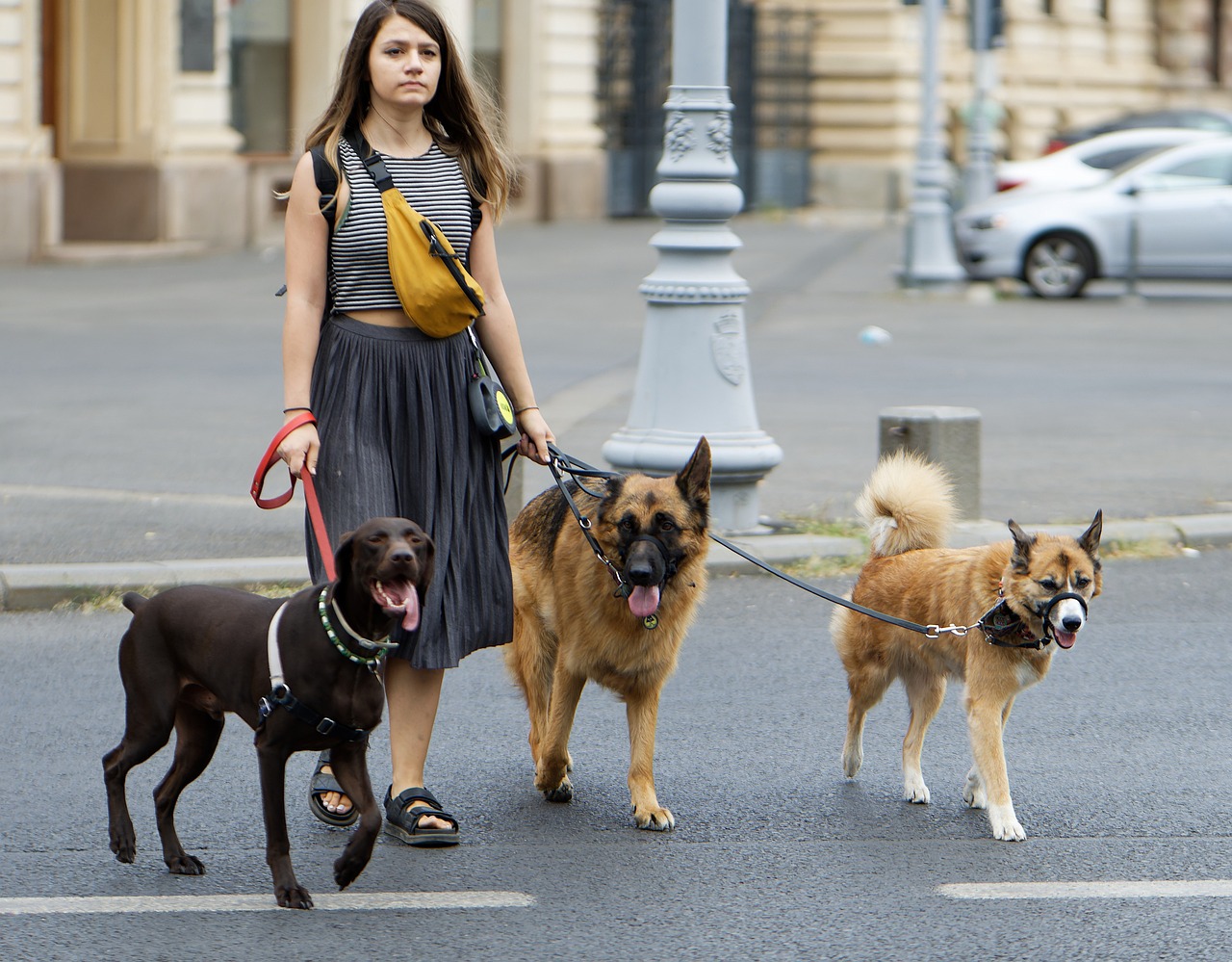Unlocking the Best Dog Walker Jobs Near Me: Your Ultimate Guide

Dog walking isn’t just about leashes and sidewalks—it’s a gateway to forming bonds with furry companions, relishing the outdoors, and earning from a passion. Whether you’re eyeing a fresh career path or seeking supplemental income, stepping into the world of dog walking can be immensely fulfilling. This comprehensive guide aims to equip you with everything necessary to discover and excel in dog walker jobs right in your neighborhood.

Understanding the Role of a Dog Walker
At its core, being a dog walker entails more than strolls in the park. It’s about safeguarding the health and happiness of clients’ pets through exercise, companionship, and responsible care. Daily routines may encompass walks, play sessions, and adhering to feeding or medication schedules as directed.
Skills Required
Successful dog walkers embody patience, empathy, and an unwavering affection for animals. Physical fitness is crucial for managing long walks and spirited dogs, while effective communication skills facilitate interactions with pet owners.
Benefits of Becoming a Dog Walker
Flexibility and Independence
Central to dog walking is the freedom it offers. Set your own hours, operate autonomously, and revel in the open air—an ideal departure from traditional office confines.
Opportunities for Exercise and Fresh Air
Unlike sedentary occupations, dog walking ensures constant activity, promoting a healthier lifestyle while earning.
Qualifications and Requirements
Necessary Certifications
Though specific credentials may not be mandatory, certifications in pet first aid or basic animal behavior can enhance your appeal to prospective clients.
Ideal Personality Traits
Reliability, responsibility, and empathy are pivotal traits. Dogs respond best to composed individuals who adeptly navigate unforeseen circumstances.
Where to Find Dog Walker Jobs Near Me
Online Platforms and Websites
Platforms like Rover and Wag! alongside local job boards are prime arenas for securing dog walking assignments. Crafting a compelling profile on these sites connects you with pet owners seeking trustworthy caregivers.
Local Community Resources
Tap into community networks—vet offices, pet stores, and dog parks—to unearth opportunities via word-of-mouth referrals.
Tips for Creating a Standout Dog Walker Resume
Structuring Your Resume Effectively
Highlight animal-related experiences, even if volunteered or from personal pet care. Emphasize reliability and dedication to pet welfare.
Highlighting Relevant Experience
Detail past dog walking or pet sitting roles, underscoring your adeptness with diverse dog breeds and personalities.
Preparing for a Dog Walker Interview
Common Interview Questions
Expect inquiries about your dog-handling experience, crisis management skills, and availability. Convey enthusiasm for the role to set yourself apart.
How to Prepare and Present Yourself
Dress appropriately, arrive punctually, and bring essential documents and references. Showcase your ardor for animal care and commitment to exceptional service.
Setting Your Rates as a Dog Walker
Factors to Consider
Research local pricing, considering location, walk duration, and supplementary services like grooming or overnight stays.
Competitive Pricing Strategies
Offer discounts for regular clients or bundled services to expand your client base while ensuring profitability.
Understanding Dog Behavior and Handling
Safety Tips and Best Practices
Prioritize safety with correct leash techniques and understanding of canine cues. Mastery of conflict resolution among dogs is equally pivotal.
Handling Different Types of Dogs
Adapt your walking approach to accommodate various breeds and temperaments, fostering trust and mutual contentment.
Building Client Relationships
Communication Skills
Transparent, proactive communication builds client trust and meets expectations. Post-walk updates reassure owners about their pets’ well-being.
Handling Client Feedback
Valuable feedback informs service enhancements, fostering a positive reputation and garnering referrals.
Legal and Insurance Considerations
Liability Insurance
Shield yourself with liability insurance to safeguard against incidents during dog walks.
Legal Responsibilities
Familiarize yourself with local statutes governing dog walking businesses, including requisite licenses or permits.
Promoting Yourself as a Dog Walker
Marketing Strategies
Establish a professional online presence with a website and social media, spotlighting testimonials and cheery canine portraits. Leverage local advertising or pet-centric flyers.
Creating a Personal Brand
Highlight distinctive aspects of your dog care approach—eco-friendliness, specialized training, or breed expertise—to stand out in a competitive market.
Continuing Education and Professional Development
Workshops and Courses
Stay abreast of industry innovations via workshops or online courses on animal behavior, first aid, or business management.
Staying Updated with Industry Trends
Acquaint yourself with new pet care products and training techniques to affirm your commitment to superior service.
Challenges Faced by Dog Walkers
Weather Conditions
Prepare for all weather eventualities with appropriate attire and indoor activity contingencies.
Dealing with Difficult Dogs
Master strategies for managing dogs with behavioral challenges, ensuring safety for all involved.
Conclusion
For animal enthusiasts yearning for a dynamic career outdoors, dog walking promises a gratifying journey. Armed with this ultimate guide, embark on your quest for the finest dog walker jobs in your vicinity. Delivering invaluable services to pet owners, you’ll forge a rewarding career path rooted in passion and dedication.
FAQS
1. What qualifications are necessary to become a dog walker?
Becoming a dog walker typically requires practical experience with dogs, a solid understanding of canine behavior and health, and occasionally, certifications in pet first aid or dog training. While formal education isn’t mandatory, a genuine passion for dogs and responsible handling are essential.
2. How much can I expect to earn as a dog walker?
Earnings in the dog walking industry can vary widely based on factors like location, experience level, and client base. On average, dog walkers earn between $15 to $30 per hour. Freelancers and entrepreneurs may earn more, depending on their reputation and the quality of services provided.
3. What legal aspects should I consider when starting a dog walking business?
Starting a dog walking business involves obtaining necessary licenses and permits from local authorities. It’s also crucial to have liability insurance to protect against potential accidents or damages during dog walks.
4. How can I effectively market myself as a dog walker?
Successful marketing strategies for dog walkers include building a strong online presence through social media and a professional website, gathering client testimonials, networking with local pet businesses, and offering introductory promotions to attract new clients.
5. What are the main challenges faced by dog walkers?
Challenges in the dog walking profession may include coping with unpredictable weather conditions, handling emergencies such as dog conflicts or health issues, managing a diverse clientele with varying needs, and navigating seasonal fluctuations in demand for services.


